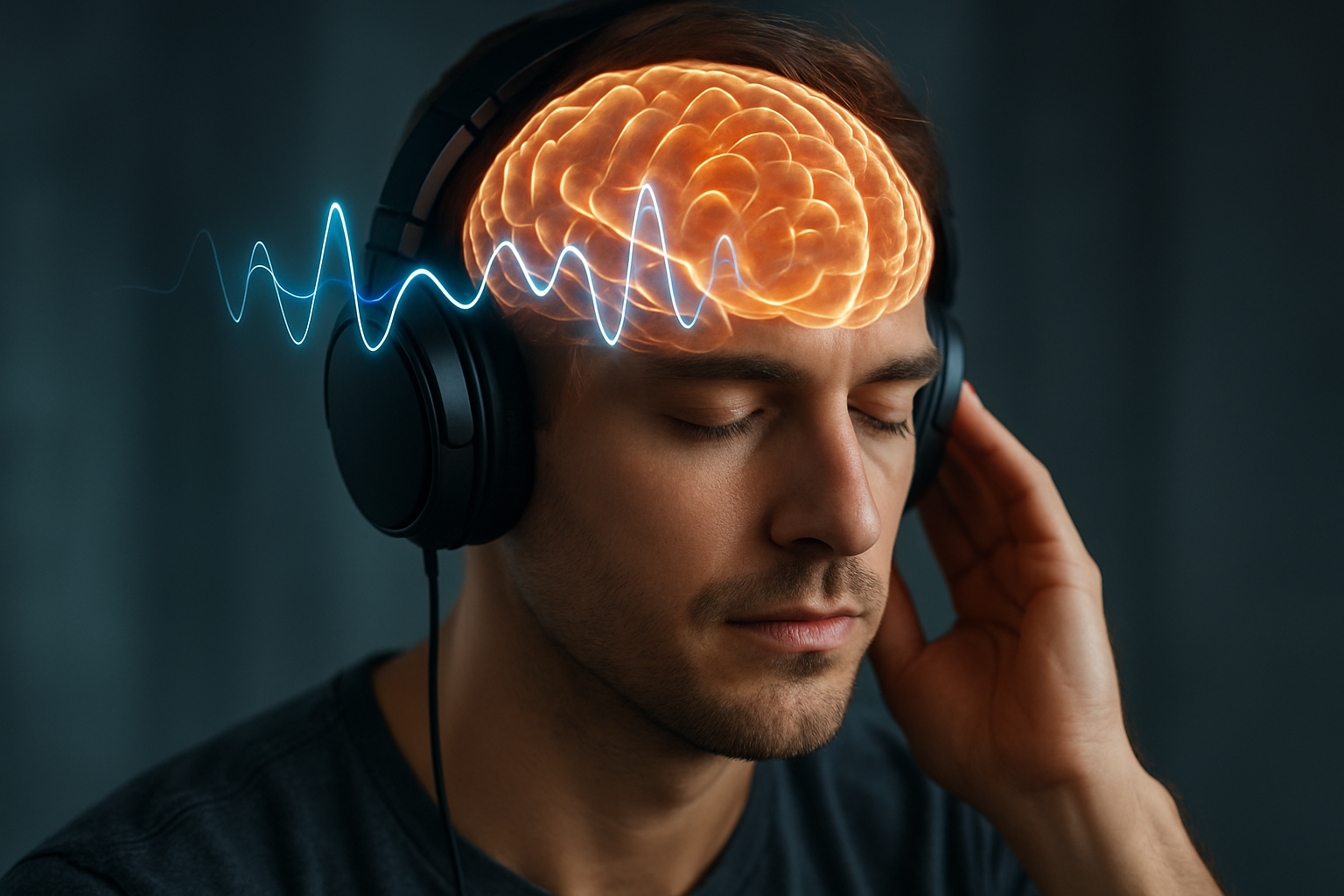Binaural Beats: Tuning Your Brain for Enhanced Well-being
Can sound waves really improve your mental state? Imagine a world where you could boost your focus, reduce anxiety, and even enhance your sleep quality, all by simply listening to specific tones. This isn't science fiction—it's the intriguing realm of binaural beats, a cutting-edge approach to cognitive enhancement that's capturing the attention of wellness enthusiasts and neuroscientists alike.

Brainwaves are the electrical pulses in our brain that correspond to different states of consciousness. Delta waves (0.5-4 Hz) are associated with deep sleep, theta waves (4-8 Hz) with relaxation and creativity, alpha waves (8-13 Hz) with calm alertness, beta waves (13-30 Hz) with focused attention, and gamma waves (30-100 Hz) with heightened perception and problem-solving.
Historical Context and Development
The concept of binaural beats was first discovered in 1839 by Heinrich Wilhelm Dove, a Prussian physicist and meteorologist. However, it wasn’t until the late 20th century that researchers began to explore their potential effects on consciousness and cognition.
In the 1970s, biophysicist Gerald Oster published a seminal paper in Scientific American, bringing binaural beats to wider scientific attention. This sparked a wave of research into their potential applications, from enhancing meditation to improving cognitive performance.
Current Research and Potential Benefits
Recent studies have shown promising results in various areas of cognitive and emotional well-being. A 2019 study published in Frontiers in Human Neuroscience found that listening to alpha-frequency binaural beats for 10 minutes led to increased creativity in divergent thinking tasks.
Another study in the Journal of Alternative and Complementary Medicine demonstrated that delta-wave binaural beats could improve sleep quality and reduce anxiety in patients with mild cognitive impairment. These findings suggest potential applications in treating sleep disorders and managing stress-related conditions.
Practical Applications in Daily Life
Binaural beats are being incorporated into various aspects of modern life:
-
Focus and Productivity: Beta-frequency beats are often used to enhance concentration during work or study sessions.
-
Relaxation and Stress Relief: Alpha and theta frequencies may help in reducing anxiety and promoting a calm state of mind.
-
Sleep Enhancement: Delta-wave binaural beats are utilized in sleep apps and programs to improve sleep quality.
-
Meditation Support: Many practitioners use theta-frequency beats to deepen their meditation practice.
-
Creativity Boost: Alpha-wave beats are employed by artists and writers to enhance creative thinking.
Challenges and Limitations
While the potential of binaural beats is exciting, it’s important to approach the technology with a balanced perspective. Some challenges include:
-
Individual Variability: Not everyone responds to binaural beats in the same way. Factors like personality, baseline brainwave activity, and even ear shape can influence effectiveness.
-
Overreliance: There’s a risk of becoming dependent on external stimuli for cognitive states that can be achieved through other means, like meditation or exercise.
-
Quality of Research: While some studies show promising results, more rigorous, large-scale research is needed to fully understand the effects and optimal use of binaural beats.
-
Potential Side Effects: Some users report headaches or dizziness, particularly with prolonged use or at higher volumes.
Integration with Other Wellness Practices
To maximize the potential benefits of binaural beats, experts suggest integrating them with other wellness practices:
-
Mindfulness: Combining binaural beats with mindfulness meditation may enhance the overall experience and benefits.
-
Exercise: Using specific frequencies during workouts could potentially boost motivation and performance.
-
Sleep Hygiene: Incorporating delta-wave beats into a comprehensive sleep routine may improve overall sleep quality.
-
Cognitive Training: Pairing binaural beats with cognitive tasks or learning activities might enhance memory and information retention.
Tuning In: Tips for Exploring Binaural Beats
-
Start with short sessions (10-15 minutes) to gauge your response
-
Use high-quality headphones for optimal effect
-
Experiment with different frequencies to find what works best for you
-
Avoid using while driving or operating machinery
-
Consult a healthcare professional if you have a history of seizures or auditory disorders
-
Combine with other relaxation techniques like deep breathing or progressive muscle relaxation
-
Keep a journal to track your experiences and any changes in mood or cognition
As we continue to explore the intricate relationship between sound and cognition, binaural beats offer an intriguing avenue for enhancing our mental well-being. While not a panacea, this technology presents a unique opportunity to fine-tune our brainwaves and potentially unlock new levels of cognitive performance and emotional balance. As research progresses, we may discover even more profound ways to harmonize our minds through the power of sound.






